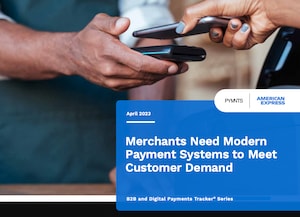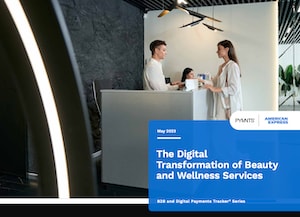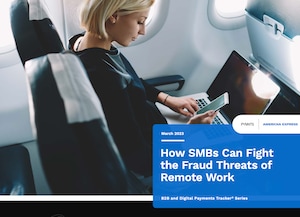October 15, 2019
Latina Business Owners Share Their Scaling Journeys and Challenges

Entrepreneurship is an avenue that many people take to uplift their communities and their families. This is especially true for those from marginalized groups. Minority-owned businesses are the fastest-growing entrepreneurial group in the U.S. And women are leading the way—particularly Latina business owners.
Latina/Latinx owned businesses are embedded in the American economy. The women who run them have some valuable insights about what it takes to scale. I spoke to two women and asked them to share their challenges and wins as Latina business owners in 2019.
Securing Funding
Like most businesses getting off the ground, securing funding can determine whether or not your organization survives. Minority women, including the large pool of Latina/Latinx women who own businesses, often have a hard time securing the capital they need to get started. For owners looking to scale, money management can be a major barrier to growth.
There are ways to address the problem of early-stage funding, including opening a line of credit or taking advantage of small business loans for Latina/Latinx women. Doing so can free up some working capital to take care of the upfront expenses required for growth.
Creating a detailed budget and keeping an eye on cash flow is an important next step. Understanding what money is coming in and going out allows business owners to adjust as needs change and cut out unnecessary expenses along the way.
Another avenue is to find the right investors for your product or service. The ideal scenario is to fill a need in the market.
A gap in the market proved just how necessary Laura I. Gómez’s product is. Gómez is the CEO and founder of Atipica, a people analytics platform for talent acquisition and HR leaders focused on diversity and inclusion.
“The workforce is rapidly changing with employees, consumers and shareholders demanding diverse and inclusive environments,” Gómez says. “Yet data for diversity and inclusion is broken and fragmented, relying on spreadsheets and self-reporting.”
So Gómez developed Artificial Intelligence (AI) technology to help organizations build modern, inclusive workforces. As a result, her transformative idea garnered the attention of investors.
“My biggest win was being funded as a solo, non-engineer Latinx female founder to the tune of $4 million,” Gómez shares.
Her ability to raise funds was necessary for the company’s growth, but that was just the first step.
Finding Market Fit
Determining how best to position products or services in the market can yield big returns for entrepreneurs as they scale their businesses. One key to growth is finding the market that understands the value of your offering. For entrepreneurs, especially minority groups like Latina/Latinx business owners who often have to work harder to be seen, finding market fit can be a challenge.
You can’t live for the accolades. You have
to move people through the sales funnel.
Understand that everyone isn’t going to
buy right away and be in it for the long game.
- Melissa Rodriguez, CEO and founder, Mel Rodriguez & Co.
Positioning Atipica in the market was the next big hurdle for Gomez. Finding organizations who both needed their offering and understood its capabilities wasn’t always easy. She’d developed an adaptive tool to resolve the lack of diversity in tech, but clients who viewed Atipica’s offering from a narrow perspective weren’t seeing it as the holistic, innovative solution it was designed to be.
Melissa Rodriguez, CEO and founder of Mel Rodriguez & Co., a marketing agency that connects companies with the growing U.S Latina/Latinx female population, echoes Gómez’s sentiment. After launching her agency, she realized that market fit isn’t always clear, especially when your product or service is innovative.
“Our biggest challenge in scaling our business has been helping organizations understand the importance of creating larger hyper-targeted campaigns rather than relying on their traditional approaches,” Rodriguez explains.
Rodriguez believed in her agency’s approach and had the data to back it up, so she stuck with it.
“You can’t live for the accolades,” she stresses. “You have to move people through the sales funnel. Understand that everyone isn’t going to buy right away and be in it for the long game. Be consistent and don’t let anyone deter you from what you know is right.”
Finding market fit can sometimes take deep analysis of trends, competition and reevaluating your target customers. Doing so while you scale can provide the answers you need to keep growing.
Creating Strong Partnerships
No one makes it to the top alone. This is especially true for minority entrepreneurs like today’s Latina business owners, who are just starting to gain access to certain resources and networking opportunities.
For Rodriguez, lasting partnerships are a core tenant of her agency’s success. But first, she had to learn to
reach out.
“It’s important to be vulnerable,” she says. “Ask for help.”
When she first started out, doing so required an uncomfortable shift.
“I’ve been self-sufficient since I was 14 years old,” she explains. “But for the first time in my life, I didn’t have money to pay my rent and that was a really dark place for me. I had so much pride and ego I didn’t know how to ask for help.”
Rodriguez eventually reached out to her parents and close friend to see her through. Paired with this support, her optimism and vision paid off. Mel Rodriguez & Co. developed strong partnerships with people and organizations that believe in their work.
“My business advisor was instrumental in helping me lay the foundation for my female-focused Latina/Latinx marketing agency,” she says, “and my corporate partners all played a huge role in helping us position our company in the market.”
Experienced team players helped her business stand out in a competitive market.
Minority women entrepreneurs are no strangers to overcoming difficulty. With feet planted firmly in the U.S. economy, Latina/Latinx business owners are among the growing and diverse group of female entrepreneurs set to change the way the market looks and operates in the years to come.
Photo: Getty Images








